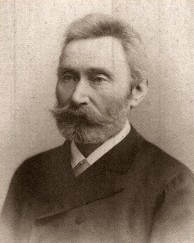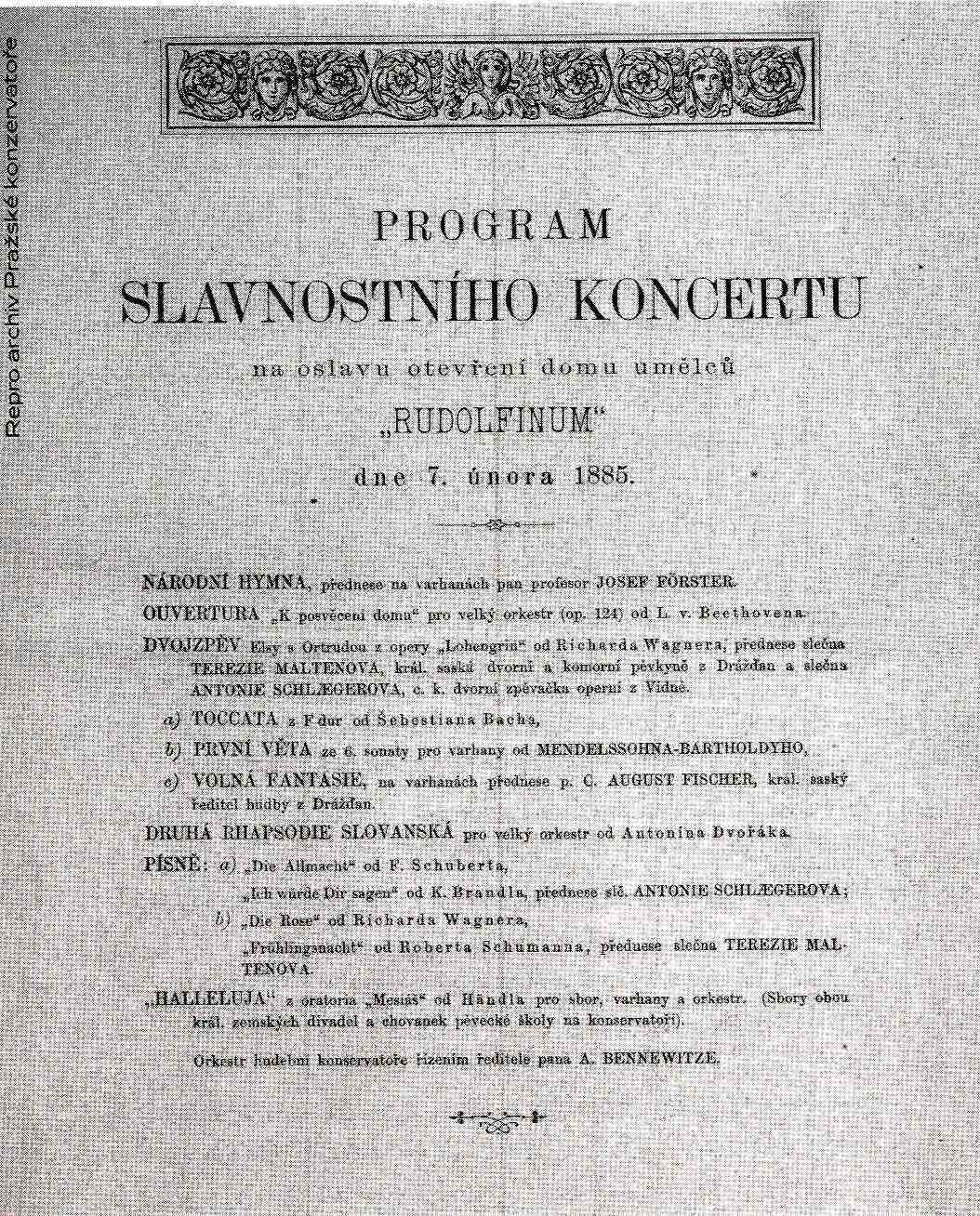Antonín Bennewitz on:
[Wikipedia]
[Google]
[Amazon]
 Antonín Bennewitz (also Anton Bennewitz; 26 March 1833 – 29 May 1926) was a Bohemian violinist, conductor and teacher. He was in a line of violinists that extended back to
Antonín Bennewitz (also Anton Bennewitz; 26 March 1833 – 29 May 1926) was a Bohemian violinist, conductor and teacher. He was in a line of violinists that extended back to  Bennewitz's pupils included
Bennewitz's pupils included Bennewitz Quartet official biography
, bennewitzquartet.com; accessed 10 February 2018.
 Antonín Bennewitz (also Anton Bennewitz; 26 March 1833 – 29 May 1926) was a Bohemian violinist, conductor and teacher. He was in a line of violinists that extended back to
Antonín Bennewitz (also Anton Bennewitz; 26 March 1833 – 29 May 1926) was a Bohemian violinist, conductor and teacher. He was in a line of violinists that extended back to Giovanni Battista Viotti
Giovanni Battista Viotti (12 May 1755 – 3 March 1824) was an Italian violinist whose virtuosity was famed and whose work as a composer featured a prominent violin and an appealing lyrical tunefulness. He was also a director of French and Italia ...
, and forward to Jan Kubelík
Jan Kubelík (5 July 18805 December 1940) was a Czech violinist and composer.
Biography
He was born in Michle (now part of Prague). His father, a gardener by occupation, was an amateur violinist. He taught his two sons the violin and after dis ...
and Wolfgang Schneiderhan.
He was born in Přívrat, Bohemia
Bohemia ( ; cs, Čechy ; ; hsb, Čěska; szl, Czechy) is the westernmost and largest historical region of the Czech Republic. Bohemia can also refer to a wider area consisting of the historical Lands of the Bohemian Crown ruled by the Bohem ...
as Antonín Benevic (his name is most often seen in a German rendering, Bennewitz) to a German father and a Czech mother. He studied under Moritz Mildner (Мильднер, Мориц) (Mořic Mildner: 1812-1865) at the Prague Conservatory
The Prague Conservatory or Prague Conservatoire ( cs, Pražská konzervatoř) is a music school in Prague, Czech Republic, founded in 1808. Currently, Prague Conservatory offers four or six year study courses, which can be compared to the level ...
from 1846-52. He then worked in Prague
Prague ( ; cs, Praha ; german: Prag, ; la, Praga) is the capital and largest city in the Czech Republic, and the historical capital of Bohemia. On the Vltava river, Prague is home to about 1.3 million people. The city has a temperate ...
(where he was engaged as first violinist of the Estates Theatre
The Estates Theatre or Stavovské divadlo is a historic theater in Prague, Czech Republic. The Estates Theatre was annexed to the National Theatre in 1948 and currently draws on three artistic ensembles, opera, ballet, and drama, which perform a ...
(1852-1861)), Salzburg
Salzburg (, ; literally "Salt-Castle"; bar, Soizbuag, label=Bavarian language, Austro-Bavarian) is the List of cities and towns in Austria, fourth-largest city in Austria. In 2020, it had a population of 156,872.
The town is on the site of the ...
and Stuttgart
Stuttgart (; Swabian: ; ) is the capital and largest city of the German state of Baden-Württemberg. It is located on the Neckar river in a fertile valley known as the ''Stuttgarter Kessel'' (Stuttgart Cauldron) and lies an hour from the ...
.
In 1859 he performed in Paris
Paris () is the capital and most populous city of France, with an estimated population of 2,165,423 residents in 2019 in an area of more than 105 km² (41 sq mi), making it the 30th most densely populated city in the world in 2020. S ...
and Brussels
Brussels (french: Bruxelles or ; nl, Brussel ), officially the Brussels-Capital Region (All text and all but one graphic show the English name as Brussels-Capital Region.) (french: link=no, Région de Bruxelles-Capitale; nl, link=no, Bruss ...
. It was during this period that on 3 December 1855 he participated in the first performance of Bedřich Smetana
Bedřich Smetana ( , ; 2 March 1824 – 12 May 1884) was a Czech composer who pioneered the development of a musical style that became closely identified with his people's aspirations to a cultural and political "revival." He has been regarded i ...
’s Piano Trio in G minor, Op. 15, in the Prague Konvict Hall, with Smetana himself as pianist and Julius Goltermann
:''Julius Goltermann should not be confused with Georg Goltermann (1824–1898), the composer of eight cello concertos.''
Johann August Julius Goltermann (15 July 1825 – 4 April 1876) was a 19th-century German cellist and music professor.
L ...
as cellist.
In 1866, he became Professor of Violin in Prague. In 1876 he succeeded Mildner as leader of Friedrich Pixis (Bedřich Vilém Pixis)’s quartet, which became known as the Bennewitz Quartet. He became the Prague Conservatory's Director in 1882, serving until 1901, when he was succeeded by Antonín Dvořák
Antonín Leopold Dvořák ( ; ; 8 September 1841 – 1 May 1904) was a Czechs, Czech composer. Dvořák frequently employed rhythms and other aspects of the folk music of Moravian traditional music, Moravia and his native Bohemia, following t ...
. He was among the founders of the Kammermusikverein, whose nationalist ideals stimulated Smetana to write his String Quartet in E minor ''From My Life''.
 Bennewitz's pupils included
Bennewitz's pupils included František Ondříček
František Ondříček (29 April 1857 – 12 April 1922) was a Czech violinist and composer. He gave the first performance of the Violin Concerto by Antonín Dvořák, and his achievements were recognised by the rare award of honorary memb ...
(who premiered the Dvořák concerto), Karel Halíř
Karel Halíř (1 February 1859 – 21 December 1909) was a Czech violinist who lived mainly in Germany. "Karel" is also given as Karol, Karl or Carl; "Halíř" is also given as Halir or Haliř.
Life
Karel Halíř was born in Hohenelbe, Bohem ...
(who premiered the revised version of the Sibelius concerto), Otakar Ševčík
Otakar Ševčík (22 March 185218 January 1934) was a Czech violinist and influential teacher. He was known as a soloist and an ensemble player, including his occasional performances with Eugène Ysaÿe.
Biography
Ševčík was born in Horaž ...
, Franz Lehár
Franz Lehár ( ; hu, Lehár Ferenc ; 30 April 1870 – 24 October 1948) was an Austro-Hungarian composer. He is mainly known for his operettas, of which the most successful and best known is ''The Merry Widow'' (''Die lustige Witwe'').
Life ...
, and three members of the Bohemian Quartet
The Bohemian Quartet ( cs, 'České kvarteto'; known as the Czech Quartet after 1918) was a Czech string quartet of international repute that was founded in 1891 and disbanded in 1933.
Origins
The Quartet was founded in Prague by three pupils o ...
(later known as the Czech Quartet) - Karel Hoffmann
Karel Hoffmann (12 December 1872, in Prague – 30 March 1936, in Prague) was a Czech violinist and music pedagogue, a founding member and first violinist of the Bohemian Quartet. In 1926–1927, he was appointed the rector of the Prague Conserva ...
and Josef Suk (violinists), and Oskar Nedbal
Oskar Nedbal (26 March 1874 – 24 December 1930) was a Czech violist, composer, and conductor of classical music.
Early life
Nedbal was born in Tábor, in southern Bohemia. He studied the violin at the Prague Conservatory under Antonín Benne ...
(violist).
On 25 February 1895, he conducted to great acclaim the first complete performance of Josef Suk's Serenade for Strings in E flat, Op. 6, with the Prague Conservatory Orchestra (two movements had been heard 14 months earlier, conducted by Suk himself).
On 3 June 1896, at the Prague Conservatory, Bennewitz conducted the first (semi-public) performances of Dvořák’s symphonic poems ''The Noon Witch
''The Noon Witch'' (or ''The Noonday Witch''; cs, Polednice), Op. 108, B. 196, is a symphonic poem written in 1896 by Antonín Dvořák which was inspired by the Karel Jaromír Erben poem ''Polednice'' from the collection ''Kytice''. ''Polednic ...
'', ''The Water Goblin
''The Water Goblin'' ( cs, Vodník; initially published by N. Simrock with the English title ''The Water-Fay'') is a symphonic poem, Op. 107 (B. 195), written by Antonín Dvořák in 1896.
The source of inspiration for ''The Water Gobli ...
'' and '' The Golden Spinning Wheel''.
In 1998 a new Bennewitz Quartet, named in honour of Antonín Bennewitz, was founded in Prague., bennewitzquartet.com; accessed 10 February 2018.
References
Sources
* Grove’s Dictionary of Music and Musicians, 5th ed. {{DEFAULTSORT:Bennewitz, Antonin 1833 births 1926 deaths Czech classical musicians Czech classical violinists Male classical violinists Czech conductors (music) Male conductors (music) Czech music educators People from Ústí nad Orlicí District Violin pedagogues